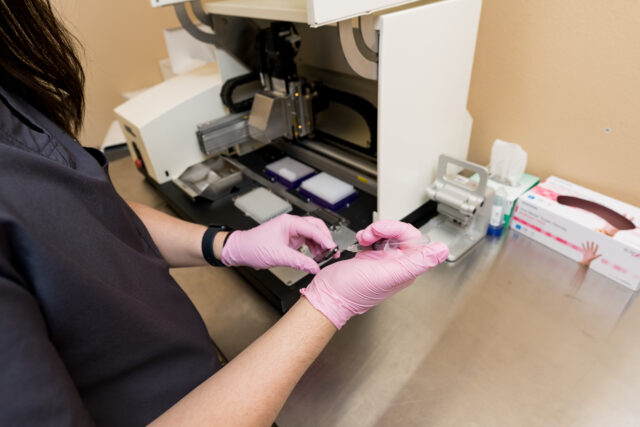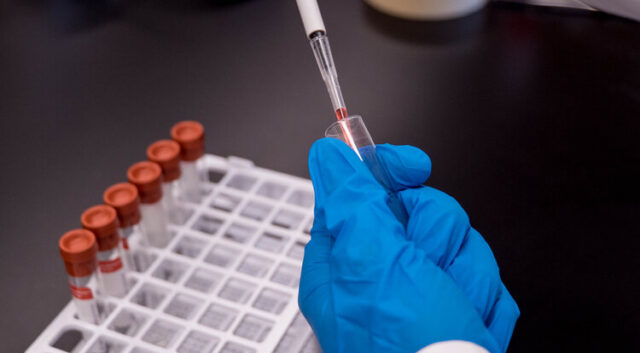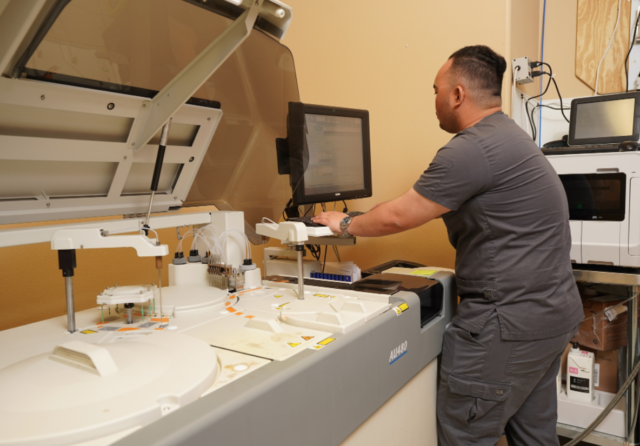GRI Labs provides urine- and saliva- based toxicology testing.
 GRI Labs provides urine and oral fluid based toxicology testing. Also known more simply as “drug testing”, the clinical benefits are numerous. These include reducing the risk for toxicity in patients vulnerable to adverse drug effects, detecting patient non-compliance, reducing legal liability associated with opioid-based pain management programs, reducing the risk of therapeutic failure, and avoiding or detecting drug interaction issues. Additionally, toxicology enhances the physician’s ability to use drugs effectively and minimizes treatment costs.
GRI Labs provides urine and oral fluid based toxicology testing. Also known more simply as “drug testing”, the clinical benefits are numerous. These include reducing the risk for toxicity in patients vulnerable to adverse drug effects, detecting patient non-compliance, reducing legal liability associated with opioid-based pain management programs, reducing the risk of therapeutic failure, and avoiding or detecting drug interaction issues. Additionally, toxicology enhances the physician’s ability to use drugs effectively and minimizes treatment costs.
Addiction Treatment
The use of lab testing to monitor substance use is a critical component of nearly every addiction treatment regimen and can significantly aid in the effectiveness of these programs. Lab tests provide valuable information to providers and help patients manage their addiction.
Workplace Drug Testing
 Drug testing is one action an employer can take to identify evidence of recent use of prescription or illicit drugs.
Drug testing is one action an employer can take to identify evidence of recent use of prescription or illicit drugs.
Drug abuse creates significant safety and health hazards and can result in decreased productivity and poor employee morale.
It also can lead to additional costs in the form of health care claims, especially short-term disability claims.
Pain Management
Chronic pain is a reality for many, and while opioids are commonly used to treat chronic pain, the opioid crisis has gained national prominence as a significant societal issue.
The use of opioids must be very carefully administered by providers to avoid adverse health outcomes in patients. Regular urinary drug testing is becoming essential for liability protection in clinical practice.
State-of-the-Art Technology
 GRI Labs uses liquid chromatography/tandem mass spectrometry (LC-MS/MS) technology to confidently identify and quantify a range of compounds.
GRI Labs uses liquid chromatography/tandem mass spectrometry (LC-MS/MS) technology to confidently identify and quantify a range of compounds.
Extensive validation prior to patient sample analysis ensures that interferences do not occur and the identification of individual drug analytes can be completed with certainty. Liquid chromatography (LC) is a technique in which a small volume of the sample is injected through a column which allows for separation of each individual analyte present in the patient sample. Tandem mass spectrometry (MS/MS) allows for the identification by fragmenting the compounds and detecting their mass to charge ratios. The determination is made by comparing the unique fingerprint of an analyte against that of a reference standard. The combination of the LC with the MS/MS allows for highly sensitive and specific determination of drugs and their metabolites.
Screening is used as a first step in the identification of drugs and their metabolites. The purpose of the screening test is to direct confirmatory testing. The goal is to cast a wide net to catch as many positives as possible and send those samples for confirmation tests.
Download the full GRI Toxicology Test Menu.